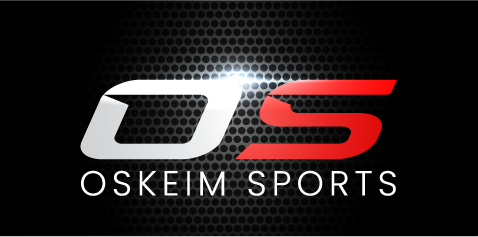
Despite having one of the best teams in NCAA basketball, Utah remains the most underrated squad in the nation as the Utes have covered the point spread in nine of their first 12 games this season. Utah is averaging 76.3 points per game on 51.0% shooting from the field and 40.4% from beyond the arc against teams that would combine to allow just 67.8 points per game. More importantly, the Utes are a perfect 9-0 at home this season where they are averaging 84.3 points per game on 56.3% shooting from the floor and 48.4% from three-point territory.
Overall, Utah is 8.5 points per game better than average offensively, which is good enough to exploit a pedestrian UCLA stop unit that is 0.1 points per game better than average (70.1 points per game to teams that would combine to average 70.2 points per game). Based on the raw data, the Utes possess a significant 8.4 points per game advantage at the offensive end of the floor in this game.
I also like the balanced approach emphasized by head coach Larry Krystkowiak as the Utes own the best scoring margin in the league despite only having one player among the top 25 in scoring. The production from newcomers Kyle Kuzma (a four-star commit), Brekkott Chapman (ranked as high as No.12 in the class of 2014 by ESPN) and Chris Reyes (transfer from St. Mary’s and Citrus College) has been integral to Utah’s fast start this season.
Despite owning a very good offense, Utah’s success is predicated upon a suffocating defense that is allowing just 56.8 points per game on 36.7% shooting from the field to teams that would combine to average 69.4 points per game against a mediocre stop unit. Utah is sixth in the nation at defending 2-point shots (37.2%) and 11th in defensive floor percentage, which measures the number of opponent offensive possessions in which there is at least one point scored. Rebounding has also been a key to the Utes early success this season as they lead with the Pac-12 Conference in total margin (+7.7).
Overall, the Utes are an impressive 12.6 points per game better than average defensively this season, which is good enough to slow down a solid UCLA attack that is 9.9 points per game better than average (74.2 points per game against teams that would combine to allow 64.3 points per game). However, the Bruins’ offensive numbers are atrocious on the road where they are a 1-5 SU and 0-6 ATS and averaging just 59.8 points per game on 34.4% shooting from the field and 24.6% from three-point territory. In fact, UCLA’s body of work on the road this season is alarming:
- 75-65 loss to Oklahoma on neutral court
- 78-56 loss to North Carolina on a neutral court
- 83-44 loss to Kentucky on a neutral court
- 56-50 loss at Alabama
- 62-56 loss at Colorado
While the season numbers to date suggest that Utah possesses a 2.7 points per game edge defensively over the Bruins’ attack, the reality is much more stark for UCLA in light of its inability to score (or win) on the road. My math model actually favors Utah by fifteen points, and the Utes apply to a very good 51-8-1 ATS home momentum situation of mine that invests on certain home favorites of ten or more points off three or more consecutive wins versus .565 or better foes off one or more consecutive road losses.
The technical analysis favoring Utah does not end there as the Utes are a profitable 35-14-2 ATS in their last 51 games overall, 35-15-1 ATS after covering the point spread, 41-18-3 ATS versus teams with a winning record and 34-16-3 ATS following a win. Utah is also 22-6 ATS at home versus teams with a losing road record, whereas the Bruins are a money-burning 0-5 ATS in their last five games off a loss, 0-9 ATS in their last nine games versus teams with a winning record and 1-8 ATS versus slow-tempo teams averaging 53 or less field goal attempts per game.
While UCLA possesses talent, head coach Steve Alford lost four starters from last year’s team that reached the Sweet 16 round of the NCAA Tournament, including three first-round NBA Draft picks – Zach LaVine (9.4 ppg), Jordan Adams (17.4 ppg; 5.3 rpg) and Kyle Anderson (14.6 ppg; 8.8 rpg; 6.5 apg). UCLA returns only one starter in senior guard Norman Powell, which leaves the Bruins’ backcourt extremely young, inexperienced and lacking depth. Alford brought in a solid recruiting class, but his efforts to bolster the Bruins’ backcourt ultimately failed. With a lot of new players on the roster and the departure of three NBA draftees, UCLA’s success this season will take time due to a lack of chemistry and experience.
Finally, this game presents one of my favorite betting angles – investing against non-altitude teams in the second of back-to-back altitude games, provided they have less than three days of rest. With UCLA having played at Colorado on Friday, the Bruins fall squarely within my “jello-legs” system. The altitude factor has certainly contributed to the Utes’ success as they are 56-1-143 (.797) all-time in the Jon M. Huntsman Center and have posted winning records in 43 of the building’s 45 seasons, including eight undefeated seasons. Utah set a school-record last year by going 18-2 at home.
Lay the number with the Utes as they improve to 10-0 at home and avenge their 80-66 loss to UCLA last February.
